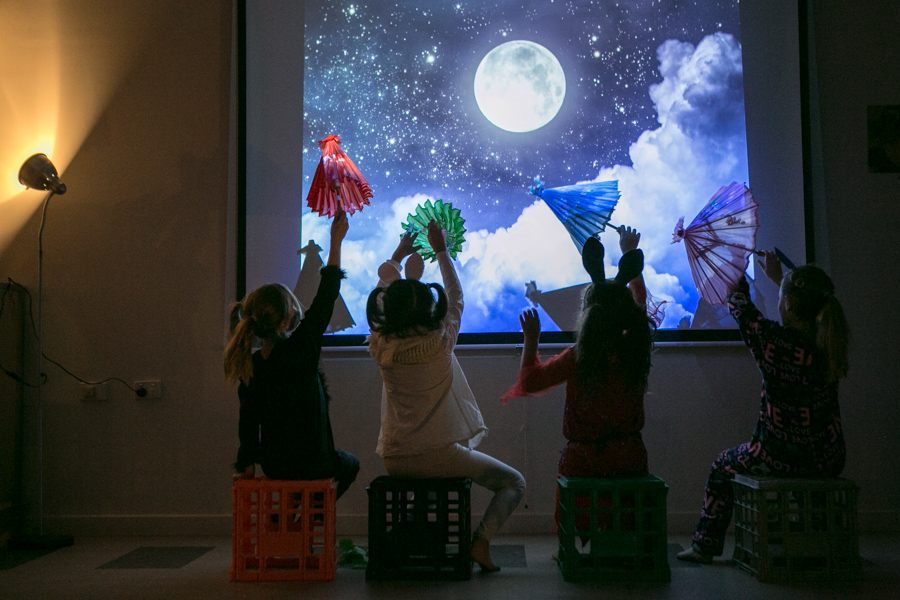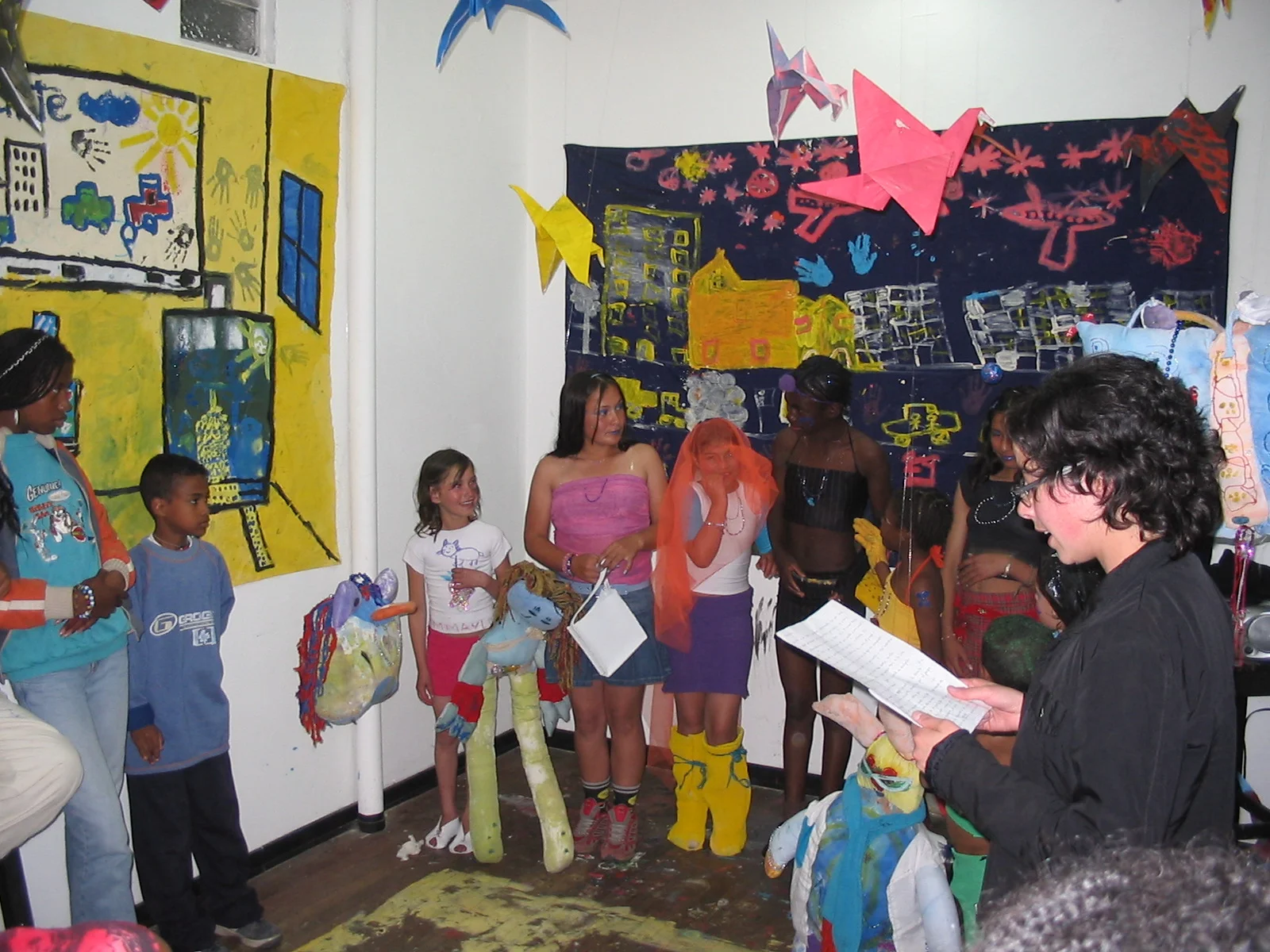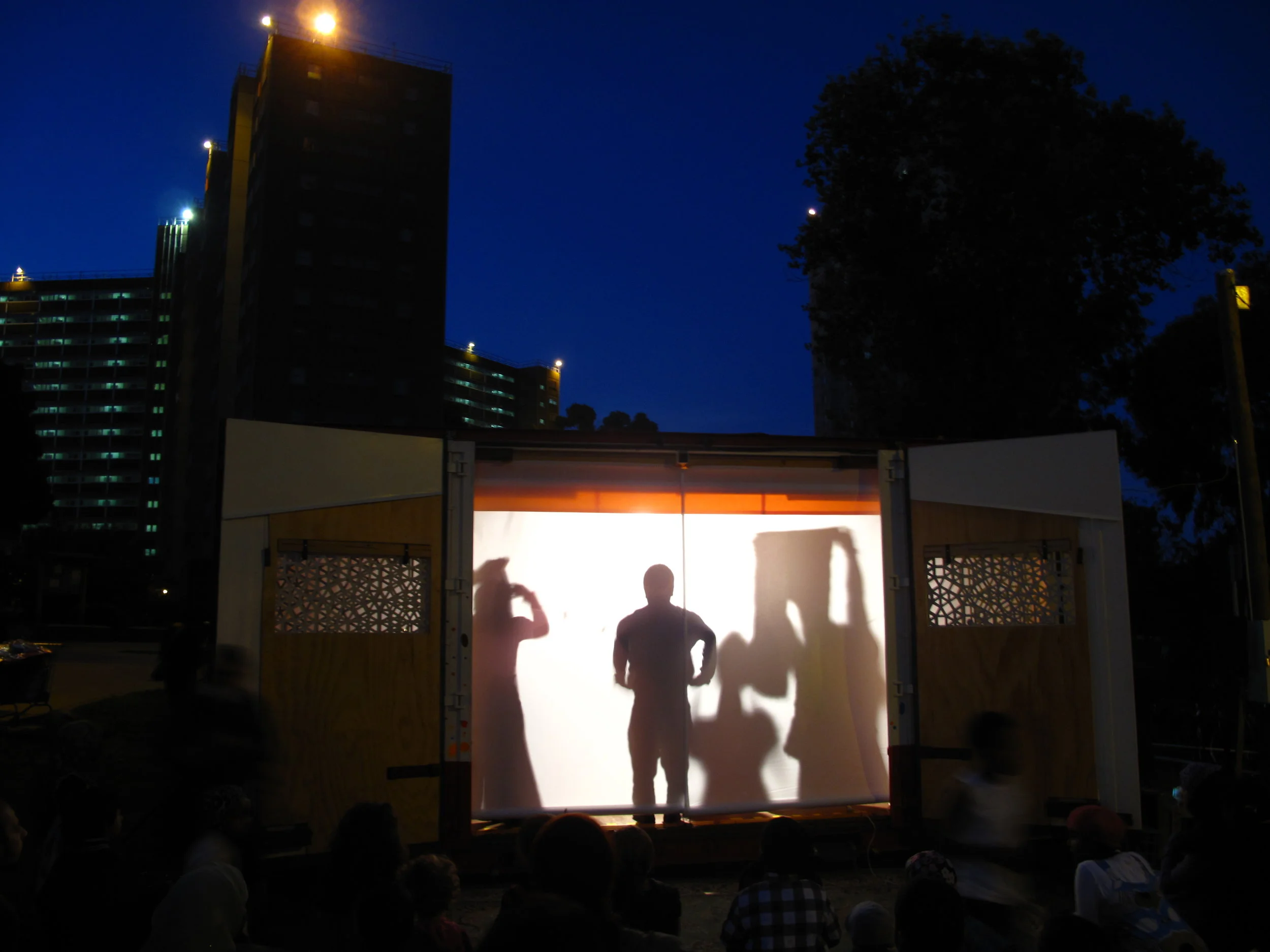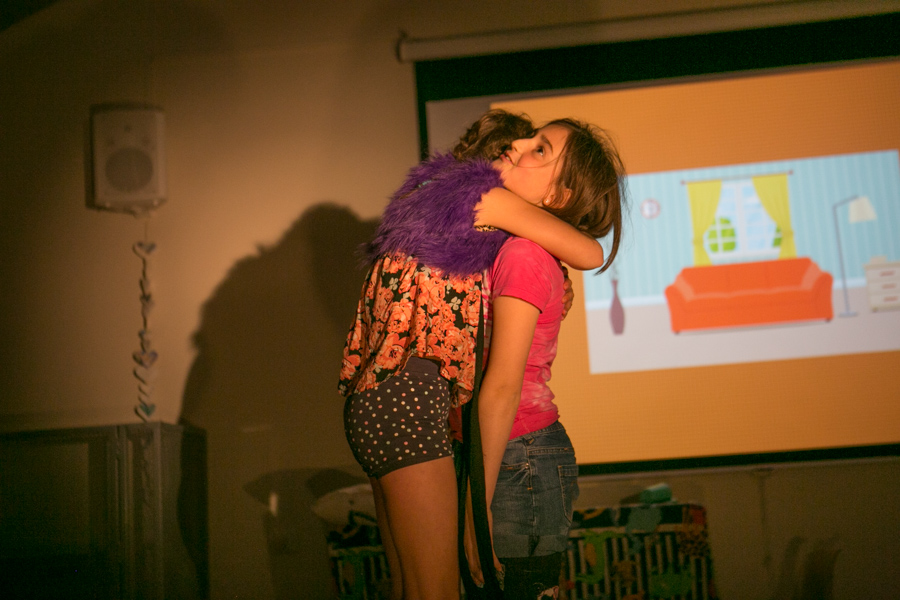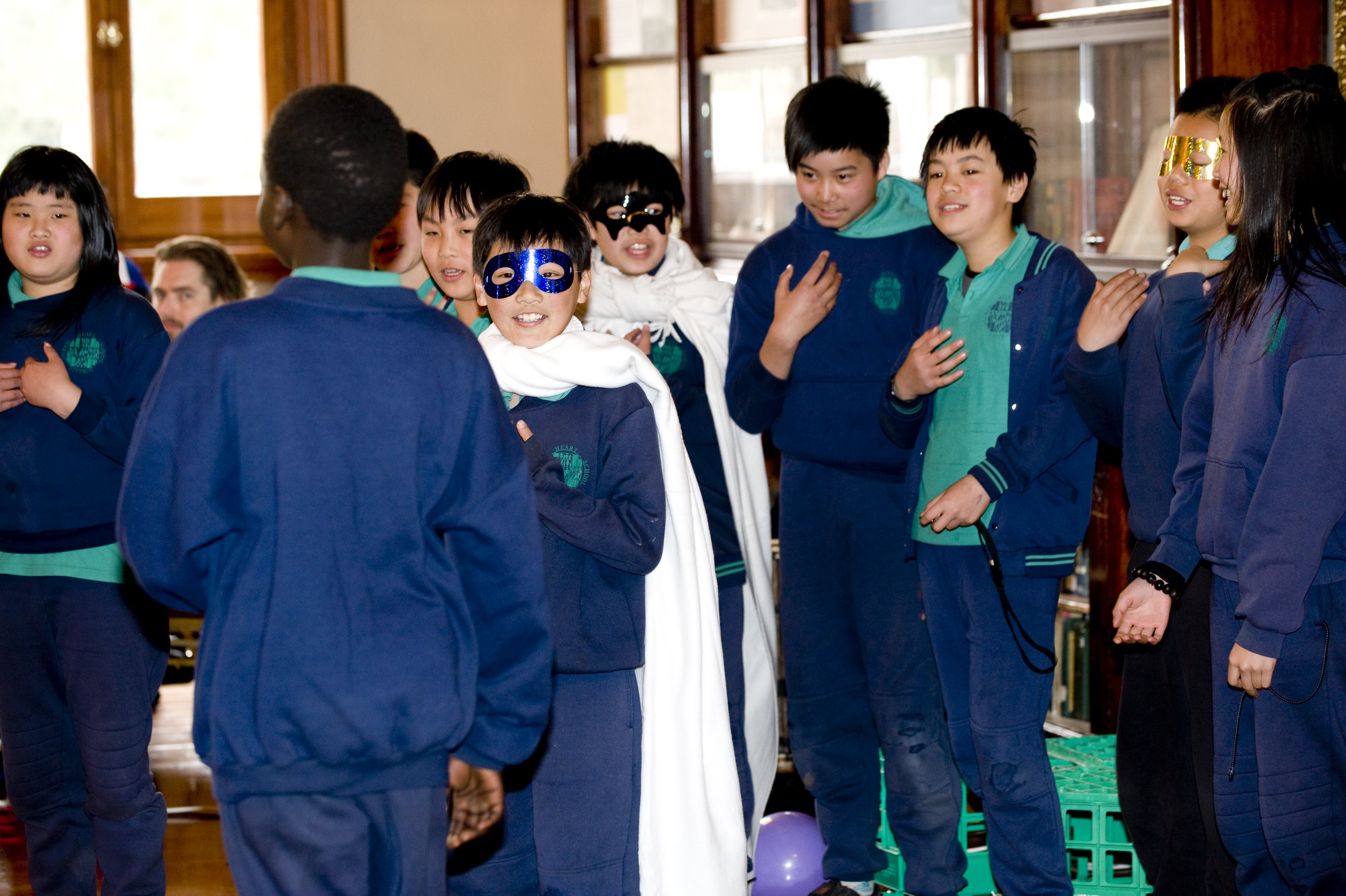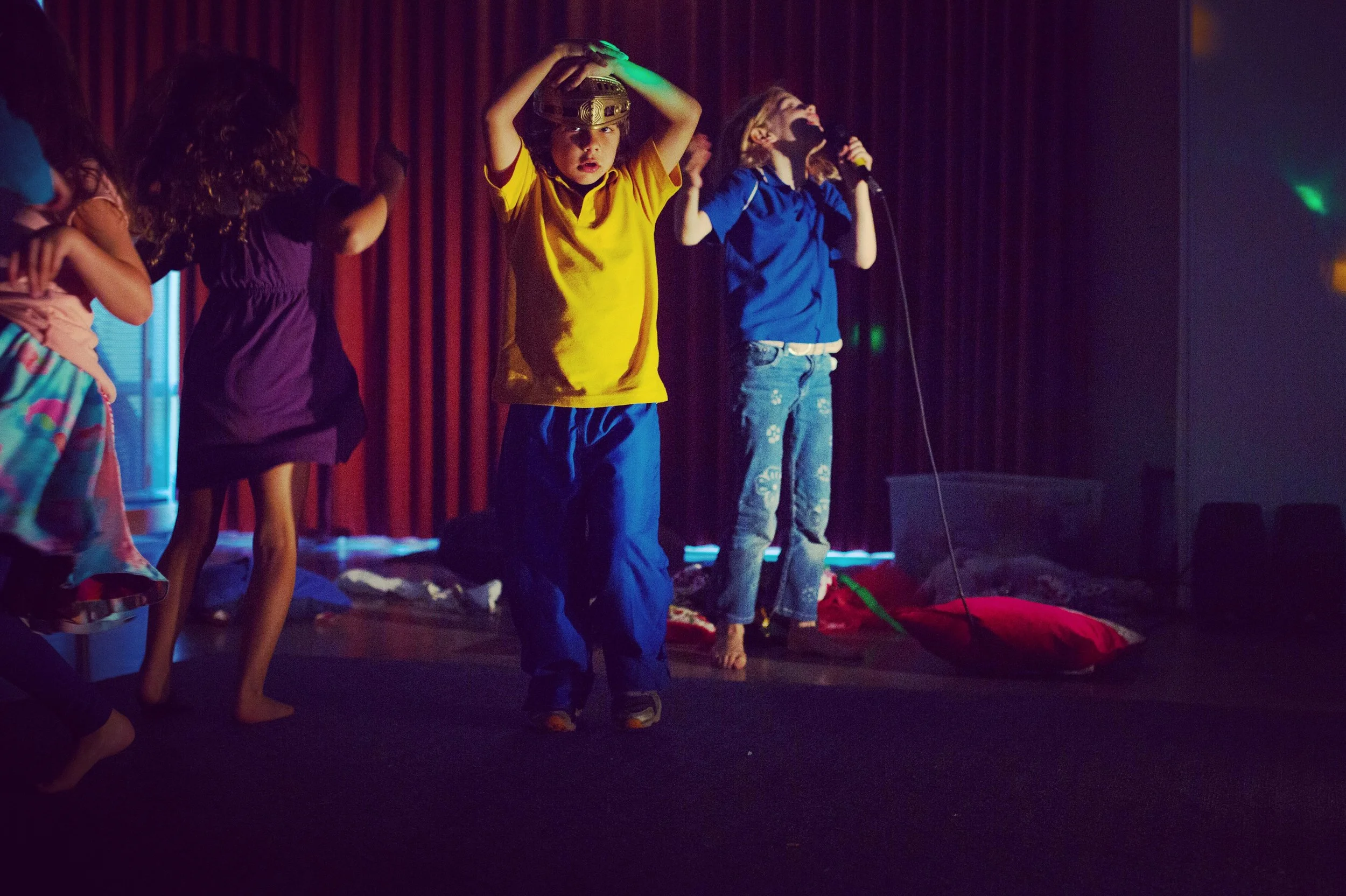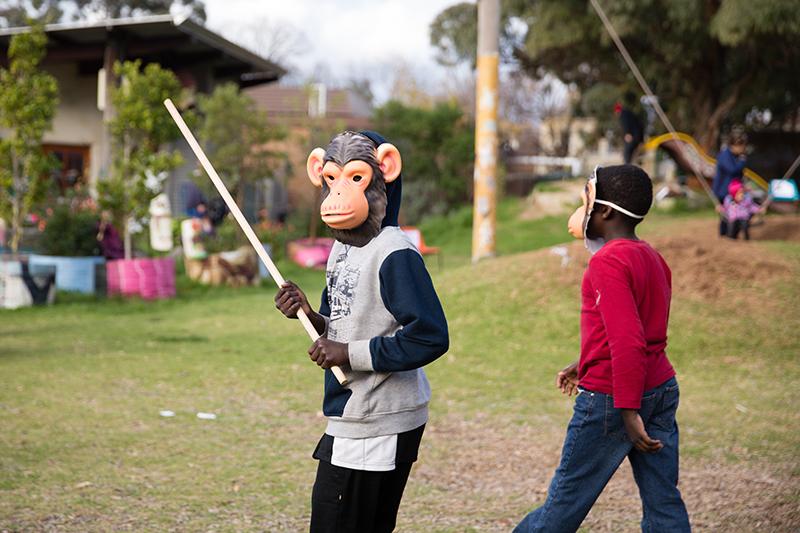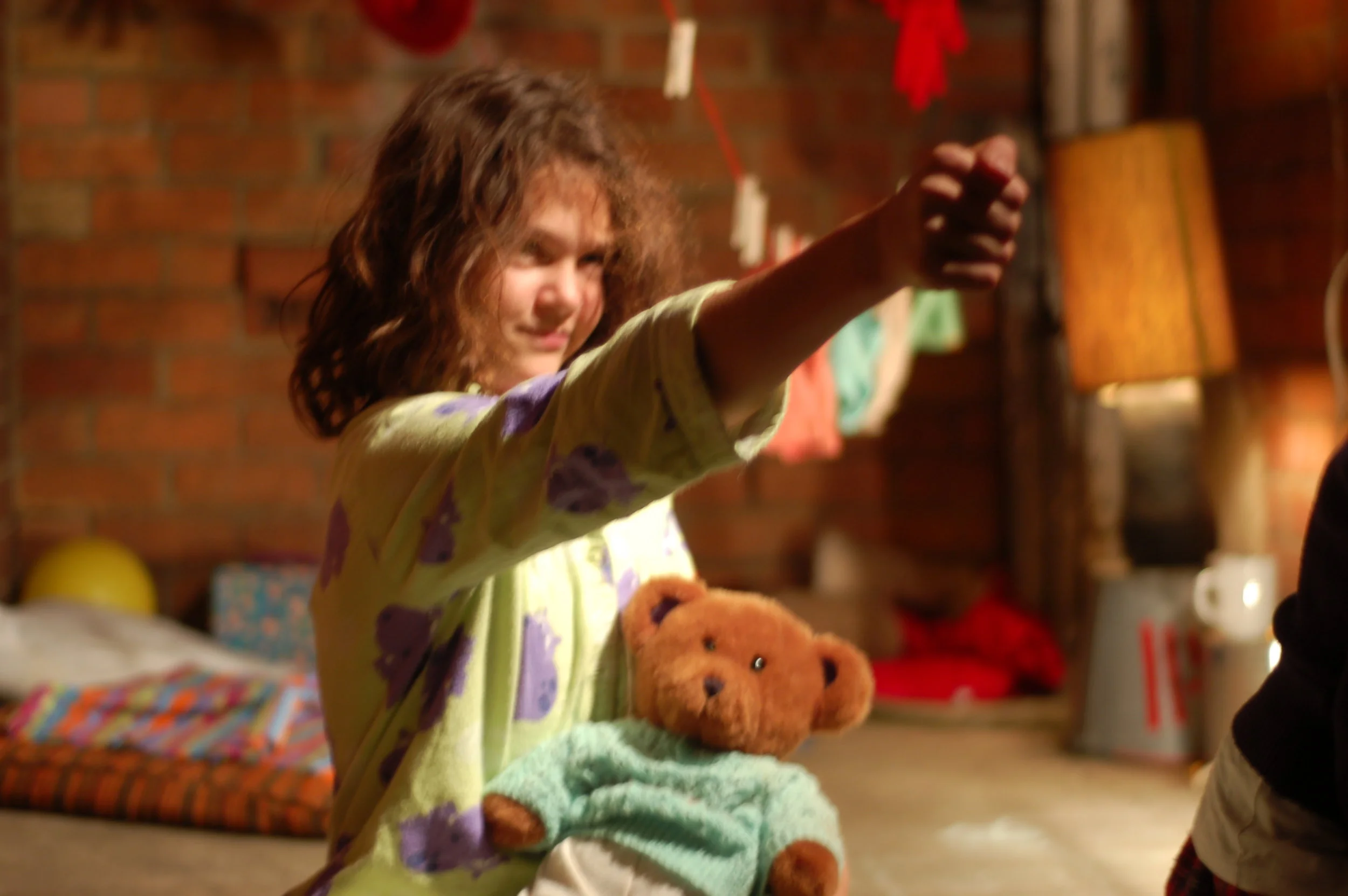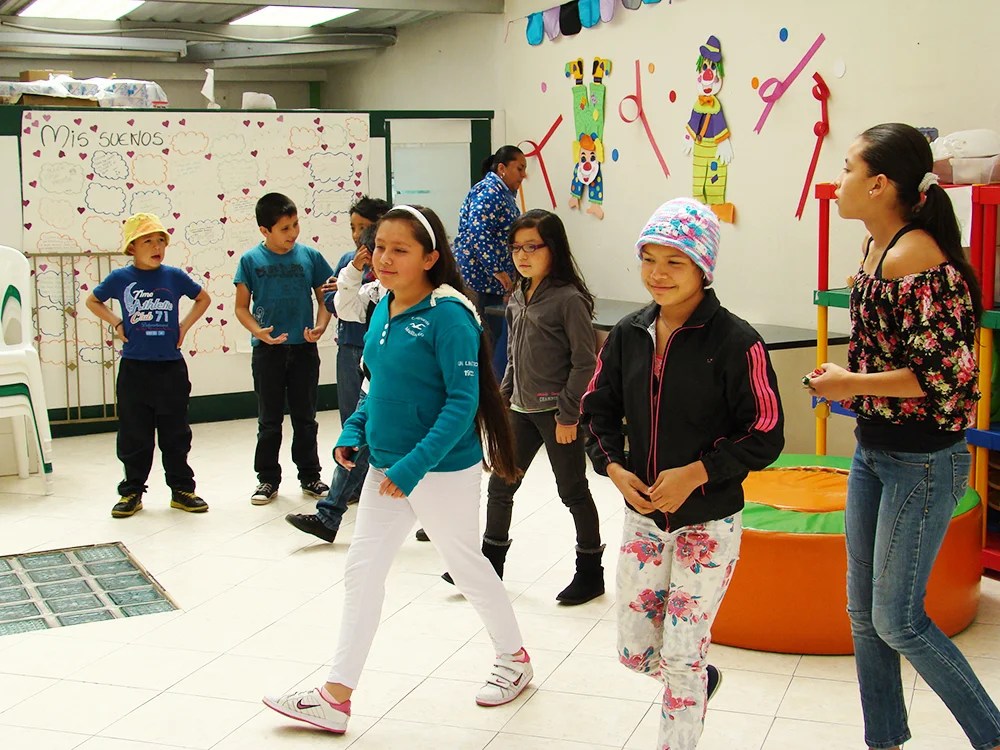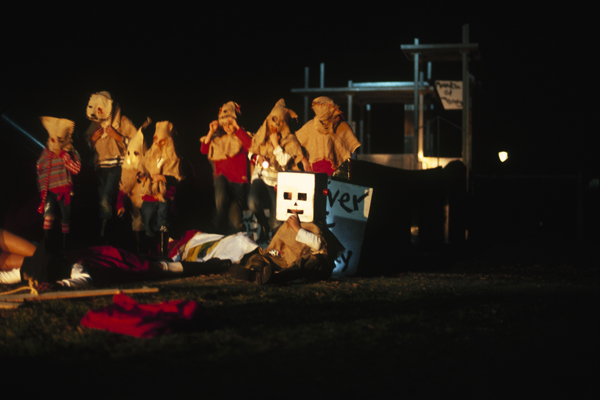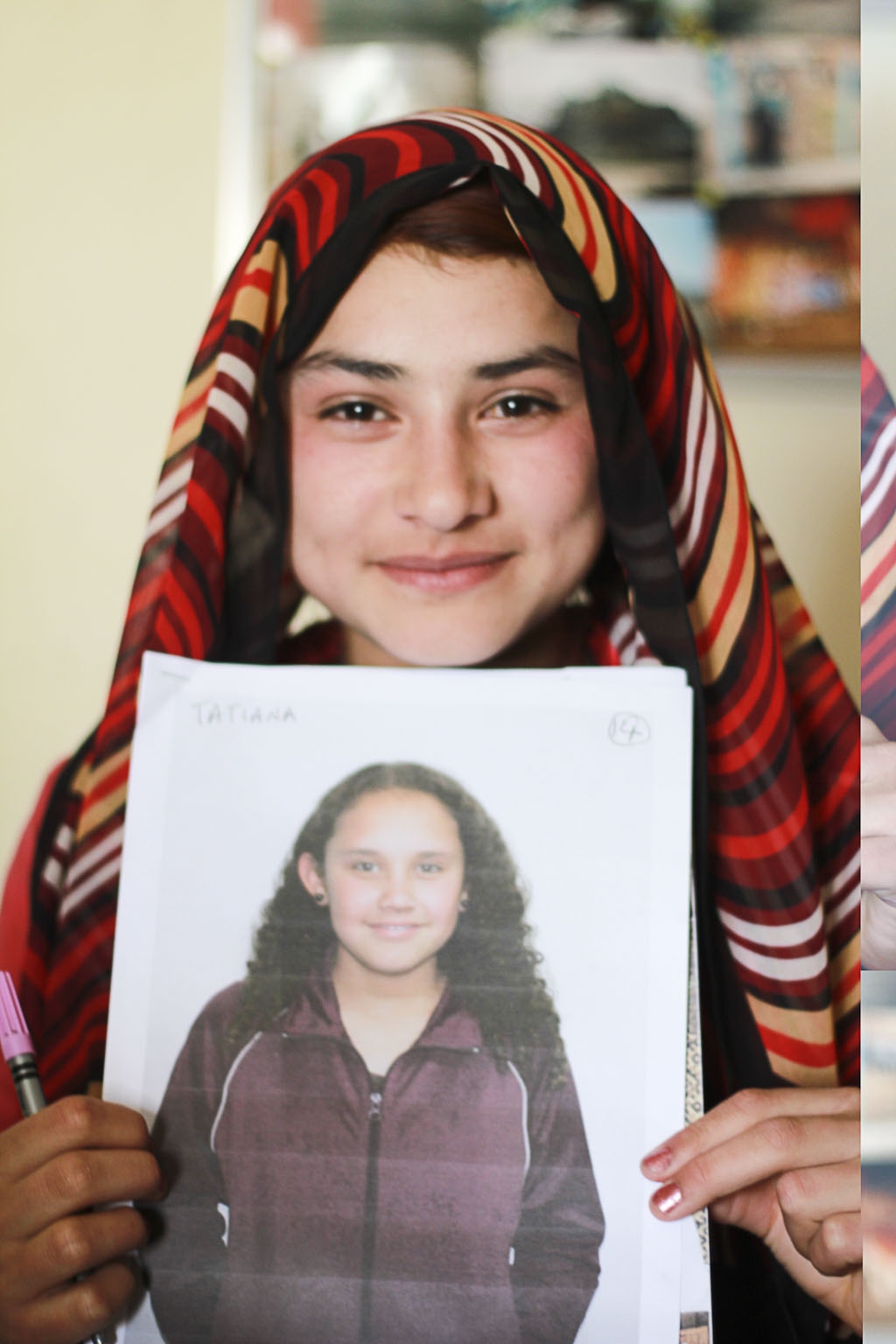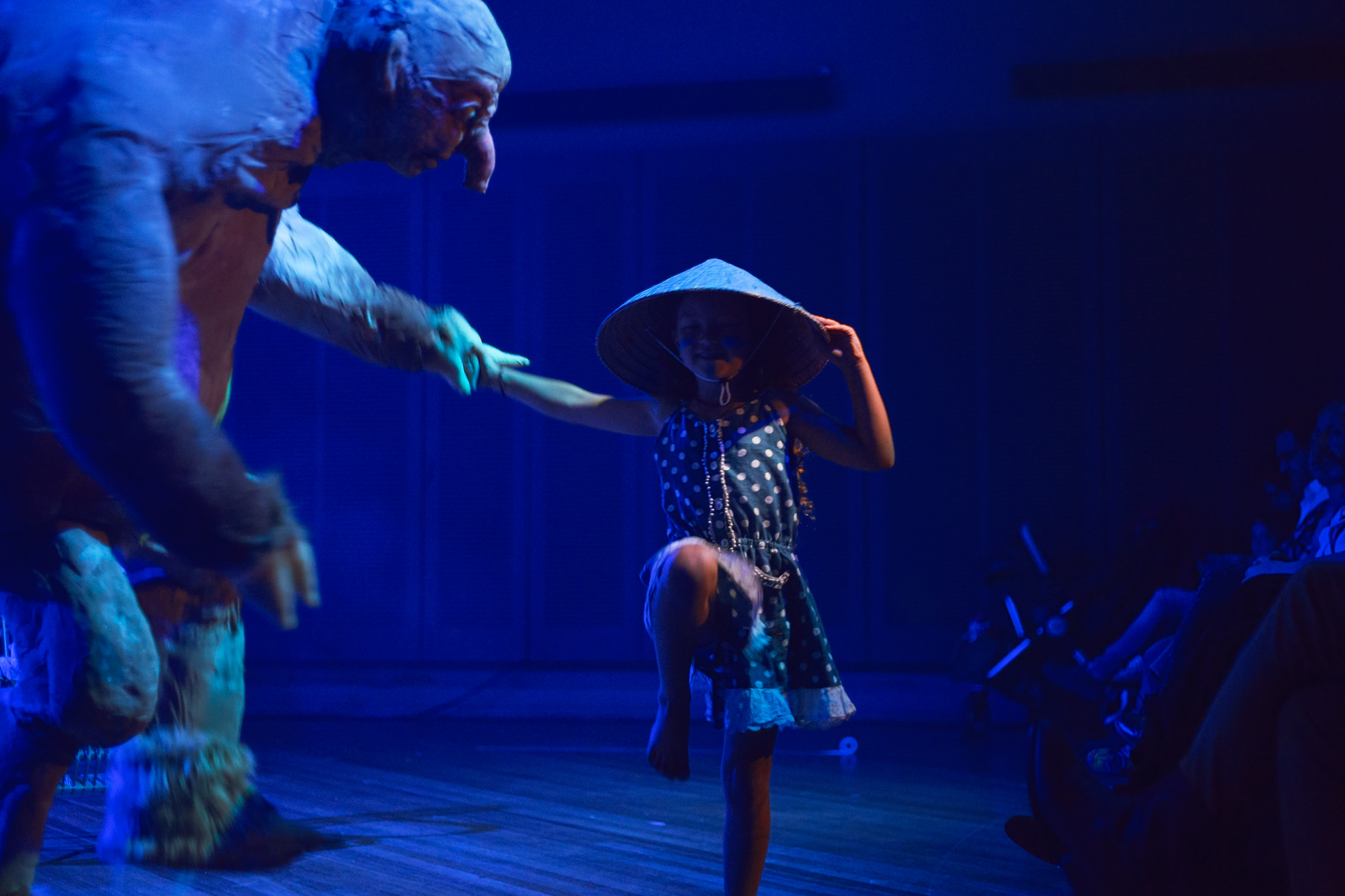Dr Escobar Vega has expertise researching children’s thinking. She also has experience consulting and implementing programs with children and young people. In the past, she has consulted with children from Colombia, Australia, Italy and Afghanistan and developed creative projects as a strategy to explore their thinking and feelings about specific issues and themes. These programs have been developed through effective mediums such as drawing, theatre, and object-making.
Often, while consulting with children, a creative outcome has been developed. Claudia has 20+ years working in the children and young people and the youth arts sector consulting and developing leadership and creative projects. Claudia has developed particular experience in the culturally diverse arts sector, partnership development, and a strong network in Australia across this sector.
You can check her blog Children and Leadership collecting thoughts, experiences and documentation of her work with children since 2003.
“Through my journey as a creative consulting and collaborating with children, I have cultivated, since the 2000s knowledge that has driven me into a strong interest in research on children’s and young people’s thinking and well-being.”
Featured projects
Leaders Exhibition (2022) - This Australian-first research project and art exhibition asked hundreds of Melbourne children to draw and describe what a ‘leader’ looks like to them, revealing unconscious biases that could potentially be influenced in early childhood. More than 900 artworks, which were created in pre-pandemic (2018) and pandemic (2022) times by students across all grades, between 5 and 12 years old were on display at Reservoir West Primary School from 25 March to 3 April 2022, alongside spoken narratives from the children involved. Dr Claudia Escobar Vega led this research project with the aim of better understanding how our ideas around leadership emerge in early life and contribute to the development of norms in adulthood, such as the lack of opportunities for women, First Nations Australians, and culturally diverse people. Claudia’s research shows we must have leadership discussions with children earlier. See more info here.
The Future Leaders Podcast (2023) FUSE Festival Commission - An intriguing series revealing the future generations' thinking about the leaders of today and their vision in the leaders of the future. This family friendly, three-episode series takes listeners on a captivating journey where children between five and twelve years old share their ideas about present-day leadership, hope for change in the world ahead, and the leaders of the future. Developed over a series of creative visual and sound workshops across 2022 with a group of students from Reservoir Views Primary School, the series will also present an on-line art gallery giving listeners the opportunity to travel both into children’s visual and spoken narratives. Built on Dr Claudia Escobar Vega’s research exploring how our implicit ideas of leadership emerge in the early years and how these link to the development of norms in adulthood, such as the lack of opportunities for women, First Nations Australians, and culturally diverse people.
Amazong (2020) *Awarded the Highly Commended Certificate, Youth for Peace Award, Australian Psychological Society (2020).
This project was a collaboration between 27 year five and year six children in a public primary school in Australia and a group of musicians. During Term 3 in 2019, fires in the Amazon had intensified and were headlining the news across the world at the time. This situation generated concern in some of the year 5 and 6 students. In a series of workshops, children were able to learn about the Amazon Jungle, its environmental relevance and its connection to Australia. Subsequently, children wrote the lyrics of a song composed by local musicians. Children recorded the song. The project gave young people a chance to express their ideas and feelings about the situation and promote a message of environmental protection.
*The Youth for Peace Award encourages and recognises innovative group projects that address current social issues around peace and conflict using psychological knowledge or strategies.
Understanding the next generation of leaders: An exploratory study of constructions of leadership during childhood (2016-2021)
Dr Escobar Vega’s PhD research investigated children’s thinking of leaders, specifically, children’s implicit representations of leaders (Implicit Leadership Theories ILTs), the ideas and expectations that children hold about the traits, behaviours, and functions of leaders. She combined verbal and non-verbal techniques gathering data via three methods: drawing, narrative, and interview. Drawing is a powerful tool for research with children because their cognitive development evolves alongside their drawing abilities, however, drawing is seen as the first step in the research process involving children and should be used in combination with graphic-narrative representations. Her method included narrative techniques to give the child the opportunity to complement the pictorial content because children’s drawings are shaped by an internal and external narrative (that contains not only the way they understand an idea but also how they think and feel about it. Her study involved 251 children between 5-12 years old from a primary school in Melbourne. This research was conducted with permission from the Department of Education and Training Victoria.
My International Friend (2008-2012)
Mi amigo internacional (My international friend) was an educational exchange project created by Dr Escobar Vega and artist and educator Jorge Leiva under the pseudonym peopleartpeople. This program provided a creative journey in which young people in Australia, Colombia and Afghanistan explored and exchanged with each other their sense of identity, family and world through visual arts shared through the web.
This project linked year nine and year ten art students from the Margaret Lyttle Memorial School -Preshil, Australia, with Academia de Artes Guerrero - Art and Youth for Peace Social Project students in Colombia, and children in Afghanistan part of the Skateistan project.
In the first years, young people from each country created artworks that addressed topics such as: me, my family and home, my school, you and me, our world, my country, my city, etc. Images of the artworks were exchanged via a website and discussed in class. In the last years of the program children collaborated creating comics together.
Ralph Newmark, author of the book Australia and Latin America: Challenges and Opportunities in the New Millennium (2014) wrote:
"Projects such as Mi Amigo Internacional are invaluable in creating awareness in the next generation of the world beyond Australia: the innovative use of contemporary technology via the internet is to be applauded. In the context of Australia and Latin America we see here the use of a cultural medium as a means of enhancing connections, recognition and understanding."
Check the project’s manual here.
Socìetas Raffaello Sanzio Visiting Scholar (2011)
During 2011, Dr Escobar Vega was invited to visit Socìetas Raffaello Sanzio, an influential Italian experiential theatre company who has a stream dedicated to experimental children’s theatre and applies the Errant Method which brings into play both sides of representation, action and reception, including as part of the scene both the children’s gaze and their tendency to spontaneously take the initiative. She attended a workshop with Chiara Guidi applying the method with a child actor.
Play:ground (2008)
This project was developed for completion of her Masters of Theatre Practice at The University of Melbourne, Faculty of the VCA and Music Australia. By attending a private primary school in Melbourne as a 6-year-old child and joining in children’s games, their imaginary play and learning processes, she was able to build a logbook of games, songs, sounds, and scenes that were utilised as material for the development of a theatre piece looking at the relationship of war with human nature.
Through this process, the children involved learned about this social issue that affects children in other parts of the world. Between the 5 and 8 November, play:ground premiered at the Carlton Gardens playground at sunset, featuring nine children aged between 6-11 years old.
The Conscience Fish (2005-2006)
A theatre show created in collaboration with 75 children at risk in Colombia in response to children’s feelings of fear in their neighbourhood. Through drawing and conversations, children talked about these fears. The most recurrent themes were the bully; a house on fire; suicide; rape; the father who hits his children and a particular man who lived alone in one of the houses close to the creek.
The show took all these fears and transformed them into characters who were defeated by a group of superheroes who had received their powers from a mythological character created from their cultural myths. The story was shared with the children and their families and they were invited to suggest changes to the story, to the characters or to the myth. In 2006 ‘The Conscience Fish’ was performed to a full house in a renowned theatre in downtown Bogota, Gilberto Alzate Avendaño in late 2006. It was free to the public and attracted 450 audience members.
Objects (2004)
A group of 20 children at risk in Colombia made small versions of their rooms and designed objects to embed their own creativity into their homes. The design process required a process of reflection on their own identity which was utilised as inspiration to design and build lamps, cushions and ragged characters which they used to decorate their homes.
Pacaludi (2004)
Exploring playground games and developing scenes with a group of nine children in Colombia. The children belonged to a community arts project supporting families displaced to the city dure to the armed conflict. This project was an exercise mixing film, ball games and new kinds of relationships when playing a ball in the playground.
